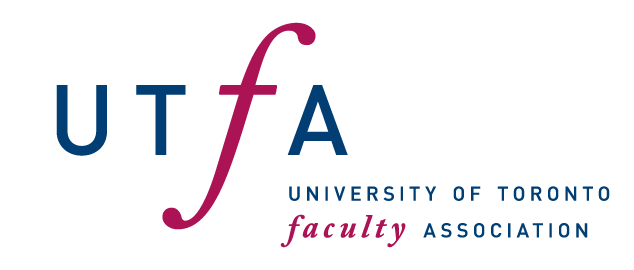Open letter (originally sent June 24, 2021)
Dear Provost Regehr, Vice-Provost Boon, Professor Hannah-Moffat,
Open Letter Regarding the University of Toronto Faculty of Music
We write on behalf of faculty, librarians, instructors, and staff working in or closely with the Faculty of Music to demand that our members be provided with a safe workplace, free of harassment (sexual or otherwise), intimidation, discrimination, abuse of power, censorship, and fear. Students must equally be provided with a safe learning environment.
An Unsafe Working and Learning Environment
The reports that have surfaced on social media in the last month - and that have been raised more directly to the Administration for some years - point to a troubling environment that has gone unaddressed in the Faculty of Music. We have heard from many of our members in the Faculty of Music that they do not feel safe in their work environments. Concerns have been raised regarding harassment, discrimination, bullying, uneven application of rules to favour some members, intimidation, abuse of power, and limitations on speech.
We recognise that confidentiality concerns mean that the wider community may not always be informed about actions taken in specific cases. We support the rights of complainants and respondents to due process and to an appropriate level of confidentiality. These confidentiality or other policy requirements do not, however, excuse the University Administration from its duty to take proactive measures to ensure a working and learning environment free of harassment and discrimination. It is evident that the Administration’s failure to take meaningful steps to address incidents of harassment and abuse of power has allowed an unsafe environment to persist.
Proactive Measures Are Needed
The Administration must act to protect faculty, librarians, instructors, staff, and students from the effects of all types of harassment.
This protection must include, at a minimum: supports for complainants and those considering a complaint (whether or not represented by a union/association); a fair complaint and investigation process for both complainants and respondents (whether or not represented by a union/association); protection from reprisal for members of the University community who provide good faith support and direction to those seeking help with harassment concerns; education on appropriate and inappropriate behaviours among and between faculty/staff and students; timely investigation and resolution of complaints; support for faculty/staff with administrative roles in dealing with harassment-related situations, including appropriate interim measures and accommodations; and monitoring of harassment disclosures and informal reports to ensure that necessary action is taken to maintain a harassment-free workplace and learning space, even in the absence of formal complaints.
Faculty, librarians, instructors, staff, and students must not be censored in their response to questions and concerns regarding harassment and safe working and learning environments. The confidentiality protections surrounding complaints and investigations must be respected, however instructions limiting the responses by faculty/staff more generally are inappropriate. The Administration further owes a duty to protect those who speak up on these issues from threats of retaliation.
Leading the Sector
We acknowledge the hard work that has been performed by many individuals and groups within the Faculty, particularly over the last year. Groups such as the Anti-Racism Anti-Oppression Committee, the Faculty of Music Undergraduate Association and the Music Graduate Students’ Association have worked hard to identify concrete issues, provide training, and give a voice to those experiencing harassment. Individual faculty/staff/students have supported their colleagues in crisis. Many love the Faculty and its many excellent aspects. But those with the power to make the necessary changes have not done so. Moreover, as is often the case, the time-consuming and emotionally charged task of attempting to deal with harassment and discrimination falls disproportionately on faculty and instructors from equityseeking groups and those in situations of precarious employment.
The environment that has been allowed to develop and persist within the Faculty of Music is unacceptable. Reliance on outdated policies, practices, and ways of thinking, and a failure to take meaningful action – or worse, a willingness to paper over or ignore – has resulted in an approach to discriminatory harassment that has failed the needs and expectations of Faculty of Music faculty, staff, and students for a safe working and learning environment. Behaviour that might have once been endured as a necessary cost of a musical career will no longer be tolerated. The University of Toronto has the opportunity to be a leader in dealing with harassment, both in Music and across the University.
To that end, we request that you arrange a meeting in the Faculty of Music to answer the many questions that have been sent to you from those who work and or learn there. Further, we strongly support the request in the Open Letter for an external, impartial review of the working and learning environment in the Faculty of Music. The review should be conducted by a skilled and independent reviewer who has familiarity with music/performing arts and the university sector, and must provide a meaningful opportunity for faculty, staff, and students to participate confidentially, so that they can safely share their experiences and recommendations. Such a review must consider whether the policies, practices, and culture in the Faculty of Music have given rise to an environment conducive to harassment, abuse of power, and sex discrimination, and whether there has been sufficient institutional accountability. Further, the results and recommendations of the review should be made public to help begin to rebuild trust and transparency within the Faculty.
The changes must come now. We stand ready to partner with you.
Sincerely,
Colleen Burke, President, USW Local 1998
Amy Conwell, Chair, CUPE 3902
Terezia Zorić, President, UTFA
